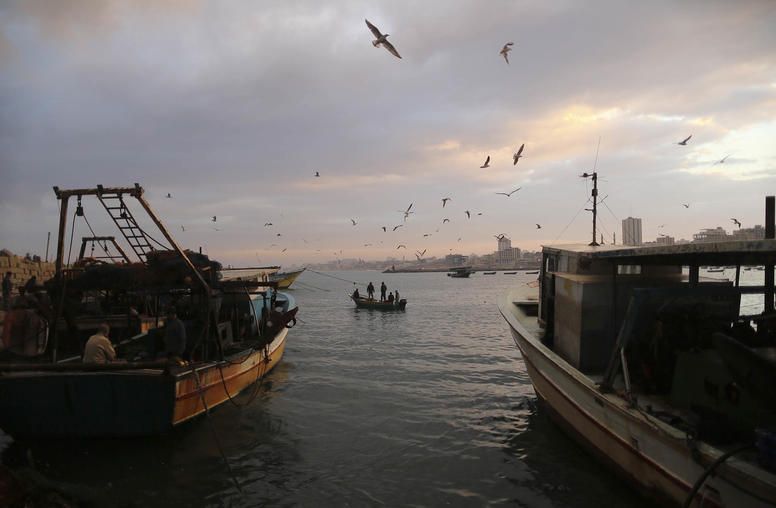Is Egypt 'Too Big to Fail'?
USIP's Raymond Gilpin examines the economic implications of the protests in Egypt.
February 1, 2011
 USIP's Raymond Gilpin examines the economic implications of the protests.
USIP's Raymond Gilpin examines the economic implications of the protests.
Riding on the wave of effective popular protests in Tunisia, thousands of activists and ordinary citizens in Egypt have taken to the streets since January 25th (a national holiday --- Police Day) and called for political reform among unprecedented scenes of mass protests and civil disobedience. These events have let the proverbial genie out of the bottle, heralding the end of 30 years of authoritarian rule. Continued unrest, violence and political uncertainty in the Middle East’s most populous country would not only undermine prospects for regional peace but could also have negative implications for the global economy.
This unrest could unravel Egypt’s recent economic reforms (initiated in the mid-2000s) which contributed to robust economic growth, a growing and prosperous middle class and significant uptake in foreign direct investment. Unfortunately, Egypt’s recent growth spurt (4.7 percent in 2009 and 5.3 percent in 2010) does not appear to have benefited the poor, who struggle with high unemployment and rising food and housing costs – inflation peaked at over 10 percent in December 2010. This encouraged mass participation in the protests that currently threaten to increase uncertainty and instability. The unrest will have a mixed impact on Egypt’s economy. The Egyptian stock exchange dropped by 6 percent on January 26th and trading had to be halted on January 27th after the stock market slumped precipitously. There are signs of capital flight among jittery investors. Sustained outflows could undermine Egypt’s financial and political stability. Although Egypt’s tourism industry is also likely to take a hit, most analysts believe the impact will be muted and temporary. On the other hand, the economy stands to benefit from a likely spike in oil prices via higher export earnings and increased receipts from Suez Canal levies. Egypt’s enclave petroleum sector is much more risk tolerant than portfolio investors. Failure to quell the unrest could result in the negatives outweighing any perceived benefits.
The Egyptian security apparatus is more than capable of crushing the demonstrations; a task made much easier by the conspicuous absence of the radical Muslim Brotherhood group from the forefront of the protests. However, a violent crackdown will not sit well with Egypt’s Western allies who support a broad-based reform agenda and an orderly transition. But allowing the protests to continue much longer will weaken the Egyptian economy and adversely impact world trade.
Egypt’s Suez Canal is a vital node for world trade with an estimated 20,000 crossings in 2010. One-third of those vessels contain general merchandise and one-in-five are oil tankers en route to Europe and the United States. Unrest in Suez (which has become an epicenter for the protests) could impact shipping and increase insurance and transportation costs, which will be passed on to global consumers. Re-routing a vessel around the Cape of Good Hope adds 2,700 miles to the journey, takes almost three extra weeks and could cost as much as $750,000 per journey. Delays in shipments would affect global trade and energy security. Although Egypt’s economy is small by global standards, the country’s geostrategic importance has made investors take notice. Oil prices have topped $90/barrel in the wake of the crisis, there is some volatility in commodity prices (especially food) and some stock markets have reacted negatively by losing value.
The return of former head of the International Atomic Energy Agency and opposition politician Mohammed El Baradei to provide ‘leadership’ suggests that the wave of protests is likely to take on a political coloring. This could present an opportunity for dialogue and a negotiated settlement. The 82-year old Mubarak must be willing to expand the space for political dialogue, move towards more inclusive governance and address widespread poverty and despair. Mubarak compromised after the 2008 food riots and he is being forced to do so again. However, the stakes are much higher this time round. The only certainty about the next chapter in Egypt’s political history is that the curtains have been effectively drawn on three decades of Hosni Mubarak’s authoritarian rule. Disaffected groups (particularly those likely to lose out during the inevitable transition) are likely to make their concerns more public and vocal. Violence and threats of violence will be seen as viable options. This does not bode well for stability or business confidence. Every effort should be made to forge a peaceful and sustainable solution to the Egyptian crisis.
Additional Perspectives
- Former U.S. Ambassador on Initial Days of Protest
By Daniel C. Kurtzer, former U.S. ambassador to Egypt - Shibley Telhami on Egypt
By Shibley Telhami, former USIP Board Member (2000-2002) - Egypt Today: Historical Context of the Protests
By Qamar-ul Huda, senior program officer, Religion and Peacemaking Center of Innovation - Read more: USIP Tracks the Unfolding Situation in Egypt



